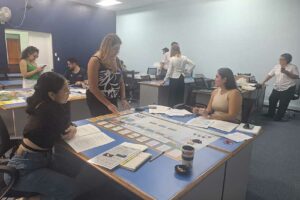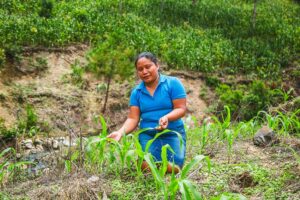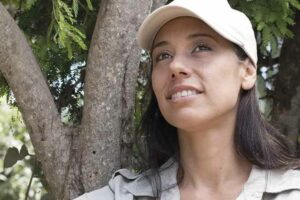They evaluate water infiltration in cattle ranches in two municipalities of La Sepultura Biosphere Reserve in Chiapas
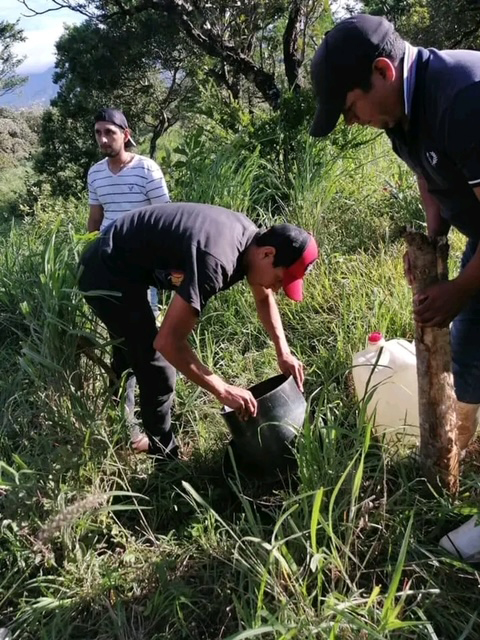
- UNACH students characterized the silvo-pastoral systems and the infiltration capacity of the soils of these systems that are being implemented by producer families to develop sustainable livestock farming on their ranches.
August 25, 2022. As part of the research agenda between academic and research institutions and the Biodiversity and Sustainable Agro-silvopastoral Livestock Landscapes project, known as BioPaSOS, in the state of Chiapas, Mexico, the characteristics of the vegetation in silvo-pastoral systems and how they contribute to water infiltration into the soil were determined.
This research was conducted by Juan Daniel Monzón and José Reynaldo Pérez, as part of their thesis work, both students of Agronomy in Environmental Livestock of the Faculty of Agronomic Sciences (FCA, its Spanish acronym) of the Autonomous University of Chiapas (UNACH), and was accompanied by research professors who are members of the Academic Body of Livestock Agroforestry (CAAP, its Spanish acronym) of the same faculty.
Monzón commented that they worked on the characterization of vegetation in three silvopastoral land uses (dispersed trees in pastures, live fences and energy protein banks) and monoculture pasture, implemented in cattle ranches in the municipalities of Cintalapa and Jiquipilas; municipalities that belong to La Sepultura Biosphere Reserve (REBISE).
Through an inventory of the vegetation on these land uses, Monzon was able to determine which species of trees, grasses and the characteristics of these species (height, percentage of occlusion, among others) are present on the cattle ranches.
"Among the cattle ranches of the two municipalities of the REBISE, 16 tree species were found, distributed in 10 families, with the Fabaceae family being the most representative. Regarding the diversity of tree species, it was found that the use of trees dispersed in pastures was the use that presented the greatest diversity of tree species, followed by live fences and the protein fodder bank," said Monzon. Fabaceae la más representativa. En lo que respecta a la diversidad de especies arbóreas, se encontró que el uso de árboles dispersos en potreros, es el uso que presentó mayor diversidad de especies arbóreas, seguido de las cercas vivas y del banco forrajero proteico”, afirmó Monzón.
Regarding water infiltration capacity in the different land uses in the two municipalities, Indilí found that there are differences in the amount of water infiltration in the different livestock land uses, with the use of dispersed trees in paddocks having the greatest water infiltration capacity compared to live fences, protein fodder banks and monoculture pasture.
Finally, Indilí pointed out that, undoubtedly, the presence of trees improves water infiltration in soils, but if animal grazing is poorly managed in pastures with scattered trees, in live fences and in protein fodder banks, water infiltration can be equal to or less than in monoculture pastures, mainly due to trampling and soil compaction.
José Antonio Jiménez, local coordinator of the BioPaSOS project in Chiapas, explained that the information generated in this research will be very useful for BioPaSOS and its local partners, such as REBISE, of the Natural Protected Areas Commission (CONANP), the Ministry of Agriculture, Livestock and Fisheries (SAGyP), and the Ministry of Environment and Natural History (SEMHN). As well other stakeholders, Livestock and Fisheries (SAGyP) and the Secretariat of Environment and Natural History (SEMHN), and other actors, will have information that will serve as a basis for future research, or to design programs or policies that promote sustainable livestock development in the state of Chiapas.
Project BioPaSOS is implemented by CATIE, with the support of the Inter-American Institute for Cooperation on Agriculture (IICA), in coordination with the National Commission for Knowledge and Use of Biodiversity (CONABIO) and the Ministry of Agriculture and Rural Development (AGRICULTURA), with funding from the International Climate Initiative (IKI) and together with multiple local partners in their territories of intervention.
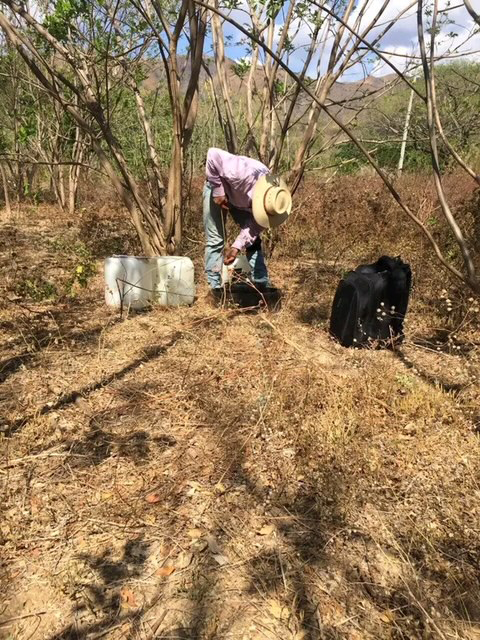
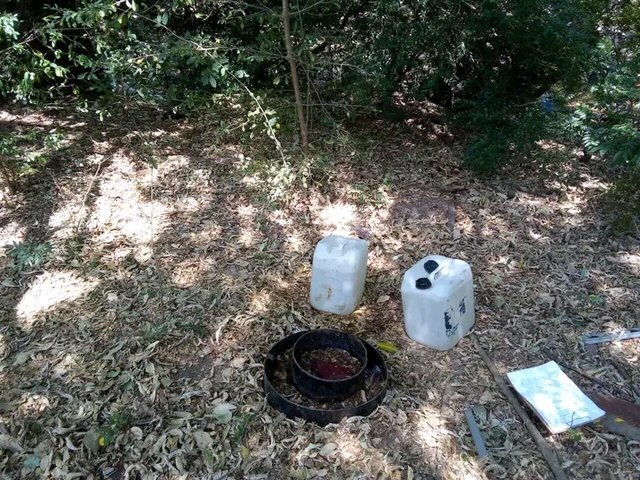
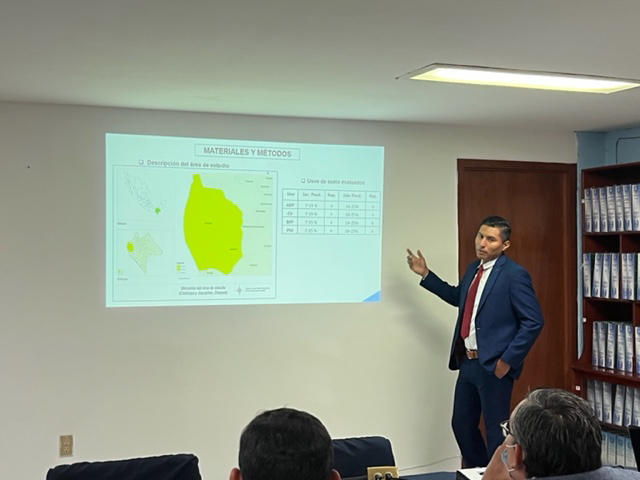
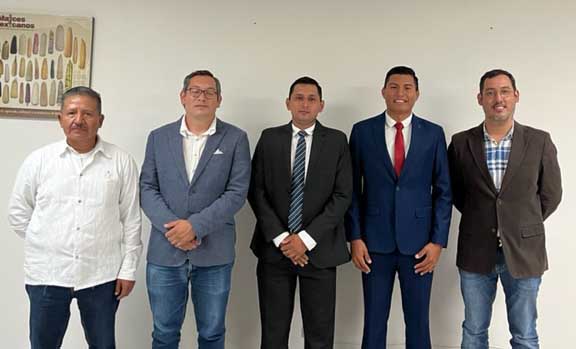
More information:
José Antonio Jiménez
Local Coordinator in Chiapas
Biodiversity and Sustainable Agro-silvopastoral Landscapes (BioPaSOS)
CATIE
joseanji@catie.ac.cr
Written by::
Karla Salazar Leiva
Communicator
Information Technology and Communication
CATIE
Tag:agua, Chiapas, ganadería sustentable

